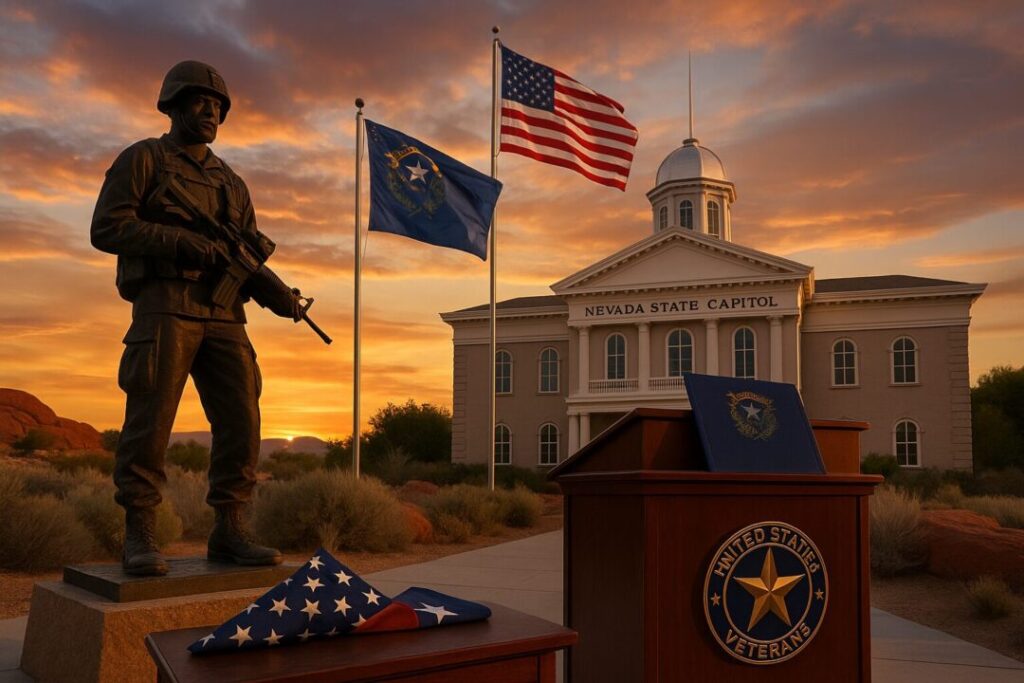Nevada lawmakers have created a new group aimed at giving veterans more influence at the state capitol.
On August 15, 2025, Assemblymember Reuben D’Silva, a Purple Heart recipient for injuries he sustained during the Iraq War in 2007, announced the launch of the Nevada Veterans Legislative Caucus.
This has been a long time coming. I look forward to the work ahead #NVLeg pic.twitter.com/2jeL5eEpIe
— Reuben D’Silva (@ReubenDSilvaNV) August 15, 2025
Nevada is home to more than 215,000 veterans according to 2023 VA data. Supporters of the caucus say it will give those veterans and their families a stronger voice in shaping state policy.
The caucus is open to members of both parties and is modeled in part on the United Veterans Legislative Council, which formed in 2023 to reduce division among veteran organizations.
The announcement comes as several ongoing issues affect Nevada’s military community.
One of the biggest is PFAS contamination, sometimes called “forever chemicals,” at military sites around the state. A recent review found contamination at seven Nevada bases, including Fallon Naval Air Station, where tests showed levels more than 15,000 times higher than federal health advisories.
Veterans and their families worry about the long-term health effects of exposure, and many say state lawmakers should be more aggressive in holding the Pentagon accountable for cleanup.
Critics argue that federal agencies have moved too slowly, leaving communities to deal with unsafe water and uncertainty.
Some veterans and advocates welcomed the caucus as a needed step.
They point to the PACT Act of 2022, which expanded benefits for veterans exposed to toxins, as proof that coordinated political pressure can bring results.
In its first year alone, that law delivered more than $1.8 billion in new benefits nationwide.
Others, however, are cautious.
Comments on social media included worries that the caucus could become another political club that spends more time in meetings than solving problems.
That skepticism reflects a broader conservative concern: adding new layers of government or advocacy groups often leads to bureaucracy without fixing core problems like VA delays, homeless veterans, or the need for faster medical care.
Conservatives will be watching to see whether the caucus focuses on real outcomes or simply adds process. Many prefer local control and cost-effective solutions, not broad new spending programs.
Nevada’s Legislature only meets every two years, with the next full session set for 2027. That means much of the caucus’s early work will involve planning, organizing, and setting priorities.
Veterans make up one of the largest and most respected communities in the state, so their political influence could grow if the caucus proves effective.
The test will be whether the caucus can deliver practical results without getting bogged down in bureaucracy.
For Nevada’s veterans and taxpayers alike, the value of this new caucus will depend on whether it turns words into action.
The opinions expressed by contributors are their own and do not necessarily represent the views of Nevada News & Views. This article was written with the assistance of AI. Please verify information and consult additional sources as needed.




